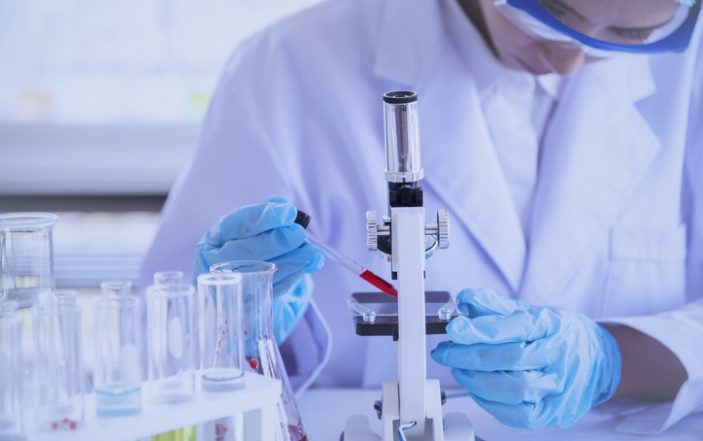How effective did trials prove in determining quicker septic shock resolution?
Background Information
Sepsis, defined as a dysregulated host’s response to infection, is responsible for millions of deaths worldwide. Two independent cohort studies found that sepsis contributed to one in every two to three deaths.[1] Patients who develop septic shock substantially increase their mortality risk due to metabolic abnormalities and end organ dysfunction.[2]
To improve outcomes, the pursuit for novel therapies has led to the development of the Metabolic Cocktail which consists of: Vitamin C (Ascorbic Acid) 1.5 grams IV every six hours until shock resolution or maximum of 10 days, Hydrocortisone 50mg IV every six hours until shock resolution or maximum of seven days and Thiamine 200mg IV every 12 hours until shock resolution or maximum of 10 days. A retrospective before and after study evaluating the use of this cocktail in septic shock showed it reduced mortality by 31.9%.[3] However, that single-center study was not a randomized control trial and had significant selection bias.
The authors of the VITAMINS Trial sought to further investigate the use of this cocktail by asking if treatment with vitamin C, hydrocortisone and thiamine led to a quicker resolution of septic shock when compared to the standard therapy of just hydrocortisone alone.
Study Design
This was a multicenter, open-label, parallel-group randomized control trial conducted in 10 intensive care units across Australia, New Zealand and Brazil. Eligible patients had to be 18 years or older, have a suspected or documented infection with an acute increase of at least two points on the Sequential Organ Failure Assessment (SOFA) Score, a lactate greater than 2 mmol/L despite fluid resuscitation and a need for continuous vasopressor therapy to maintain an adequate mean arterial pressure greater than 65 mmHg for more than two hours.
The study had several exclusion criteria, a few of which included: pregnancy, known HIV infection, imminent death, onset of septic shock greater than 24 hours and G6PD deficiency.
Patients were randomly assigned into two groups using a computer-generated allocation sequence. One, the treatment group, received the Metabolic Cocktail as described above and the control group received the standard therapy of Hydrocortisone 50mg IV every six hours. The primary outcome of the study was time alive and free of vasopressors at day 7 after randomization. The authors looked at several secondary outcomes, some of which included 28- and 90-day mortality, ICU and hospital mortality and hospital length of stay.
Study Results
Of the 786 patients assessed for eligibility, 570 were excluded due to preset criteria and 216 patients were randomized. Since five patients withdrew consent or consent was not obtained, 211 were included in the primary analysis. The primary sites of infection were pulmonary, gastrointestinal and urinary.
The median time alive and vasopressor free for up to seven days for the treatment group was 122.1 hours and for the control group was 124.6 hours. The 95% confidence interval was -8.3 to 7.2 hours with a p-value of 0.83, meaning there was no statistically significant difference in the primary outcome between these two groups.
Furthermore, there was no difference in 28-day, 90-day, ICU or hospital mortality. Although this study was not powered to detect differences in secondary outcomes, many of them showed no difference. There was no difference in 28-day vasopressor free days, mechanical ventilation free days, renal replacement therapy free days or ICU free days.
Strengths and Limitations
This is the first randomized clinical trial evaluating the use of the same metabolic cocktail that has been previously studied by Dr. Paul Marik showing reduced mortality. This was a moderately sized trial that was larger than previous studies. It’s impressive that randomization was concealed, performed properly and very few patients were lost to follow-up. Additionally, performing this study across high- and middle-income countries helped improve the external validity of the results.
Unfortunately, being an open-label study means all study-site personnel were aware of the interventions assigned to the two treatment groups and thus introduces bias. The current mainstay treatments of sepsis are early detection and appropriate antibiotics. The authors of this study did not include information regarding the time to administration or the appropriateness of antibiotics. Also omitted, was the amount, time or type of fluids these patients received. Lastly, although the treatment group had a lower APACHE score, they appear to have been sicker than the control group, as evident by a higher lactate, higher white-blood cell count and more likely to have received Milrinone.
A significant limitation that can not be overlooked is time to medication administration plus time to randomization. The average time from ICU admission to randomization was 12 hours and the average time from meeting eligibility criteria to receiving the first dose of vitamin C and hydrocortisone was 12 and 8.9 hours, respectively. This means, patients waited more than 24 hours before receiving these medications and it may have been too late for a clinical effect to be seen.
Bottom Line
Intravenous vitamin C, hydrocortisone and thiamine for the treatment of septic shock did not improve duration of time alive and time free of vasopressor administration when compared to hydrocortisone alone. There is another much larger randomized control trial underway that is actively investigating the use of this metabolic cocktail in septic shock called the VICTAS trial. However, until that study and subsequent trials come out, the current evidence does not support the use the metabolic cocktail in septic shock at this time.
REFERENCES
- Liu V, et al. Hospital Deaths in Patients With Sepsis From 2 Independent Cohorts. JAMA. 2014; PMID: 24838355
- Fujii T, et al. Effect of Vitamin C, Hydrocortisone, and Thiamine vs Hydrocortisone Alone on Time Alive and Free of Vasopressor Support Among Patients With Septic Shock: The VITAMINS Randomized Clinical Trial. JAMA. 2020; PMID: 31950979
- Marik PE, Khangoora V, Rivera R, Hooper MH, Catravas J. Hydrocortisone, Vitamin C, and Thiamine for the Treatment of Severe Sepsis and Septic Shock: A Retrospective Before-After Study. Chest. 2017; PMID: 27940189



